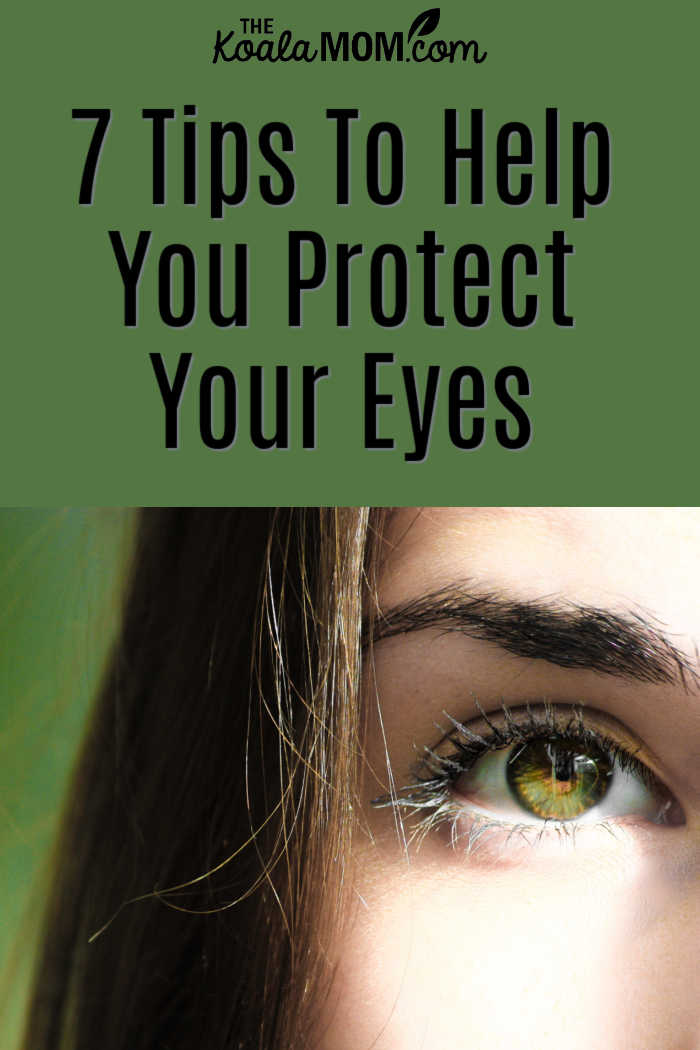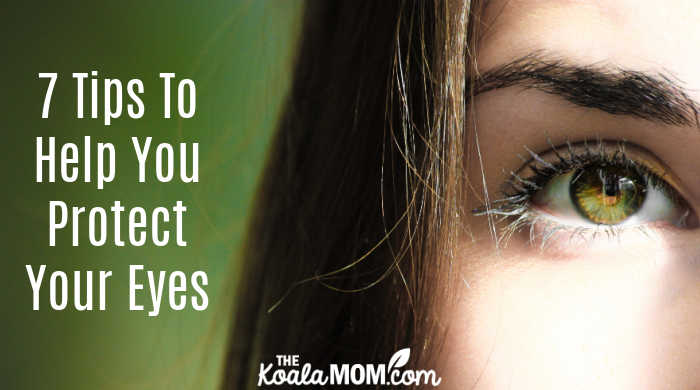All those seemingly routine everyday activities, such as driving to and from work, checking a restaurant menu, or watching a favorite program on television, become challenging when you have poor vision. We frequently take for granted the ability to see. But maintaining excellent vision involves care, much like maintaining physical health.
There are items we should attempt to avoid that could harm our eyes and actions we could take to encourage healthy eye health. It’s essential to identify the most advantageous and avoid those that could impair our ability to perceive the world correctly. Due to these factors, we have put together a thorough list of steps you can take to actively safeguard your eyes.

In Bright, Outdoor Light, Put on Your Sunglasses
Sunglasses serve purposes beyond just fashion. With proper lenses, you can keep your eyes safe from the sun’s damaging UV radiation. Accordingly, this website can help you with a bunch of different lenses, so you can combine the attractive and practical—match the lenses with the frames and protect yourself from UV radiation.
If you’ve ever been outside in bright sunlight reflecting off of snow, sand, or ice, you are aware of how challenging or even painful it may be to see well afterward. A condition called photokeratitis, or eye sunburn, may result from this.
These kinds of incidents can produce momentary irritation, but they could also raise your risk of contracting a more severe illness, like glaucoma. Wear safety glasses when working with laser light or a welding torch, sunbathing in bed, or spending long periods of time in bright outdoor light.
Stop Smoking
Smokers and tobacco chewers put themselves at risk for a number of illnesses, including vision loss. As you age, macular degeneration has been linked to smoking, according to research. Cataracts, glaucoma, and dry eye disease may all be caused by smoking.
While the majority of people see an increase in risk as they get older, consuming cigarettes can enhance the risk by three times. If you smoke or chew tobacco, you should stop right away if you are concerned about your vision in the future.
Throw Away Old Beauty Products
Using stale or contaminated cosmetics might also increase your risk of getting eye infections and other problems. Never swap cosmetics with a friend, and avoid using dirty or worn-out applicators, brushes, or sponges. In these circumstances, bacteria can flourish, particularly if your products have absorbed moisture from a drawer or damp sink.
Wash your brushes frequently, and only use new cosmetics that have been tightly closed. Throw away used sponges and pads, and keep your products somewhere dry and away from moisture.
Maintain Your Contacts
Although contact lenses are excellent at correcting and improving vision, they are also a major source of eye infections. To help prevent eye infections, use contacts with extreme caution.
Before inserting or removing them, wash your hands completely, and be sure you frequently sanitize them with a contact lens cleaning solution. Avoid sleeping or swimming while wearing contacts, and always replace them on time.
Visit Your Eye Doctor Frequently
To preserve your vision as you age, visit your eye doctor frequently. Regular eye exams help identify chronic problems in their earliest stages. Additionally, prevention and early treatment are essential for preserving good vision.
According to general guidelines, if you don’t currently have any eye conditions, you should obtain an eye exam every:
- from age 20 to 64 years old, every two to four years
- from age 65 and up, every year
A person should get their eyesight checked more frequently if they have had any eye injuries, have a family history of vision problems, or suffer from diseases like diabetes.

Adopt a Healthy Lifestyle
In the US, diabetic retinopathy is the most common cause of vision loss. Diabetes is the underlying illness that causes it. If your blood sugar level is high and stays high for an extended period of time, your blood vessels are damaged. If the problem is not treated, you could lose your vision or perhaps go blind.
Learn to manage chronic illnesses like diabetes and hypertension, maintain regular doctor appointments, and see your vision expert at least once a year to avoid loss of vision from blood vessel damage. Your best line of defense against chronic health disorders like these is dietary, training, and stress management changes.
Take Periodic Eye Rests
A lot of us spend a lot of time each day sitting in front of computers. Even though it might be required, it does not have to blur your vision. If you spend hours in front of a computer, you may want to consider wearing blue light glasses to keep your eyes from getting overtired.
There are also a lot of ways to relax and rest your eyes in this digital world. One of them is using the 20-20-20 method if you are logged in for extended periods of time. Start by looking up from your monitor once every 20 minutes and spending 20 seconds focusing on something that is 20 feet away.
If you routinely follow these seven recommendations, your eyes will be protected from harm. Additionally, keeping up with frequent vision examinations will guarantee that any issues are promptly identified and treated.

No Responses Yet